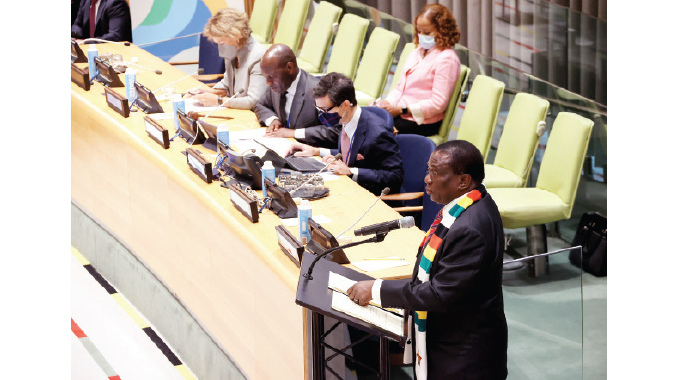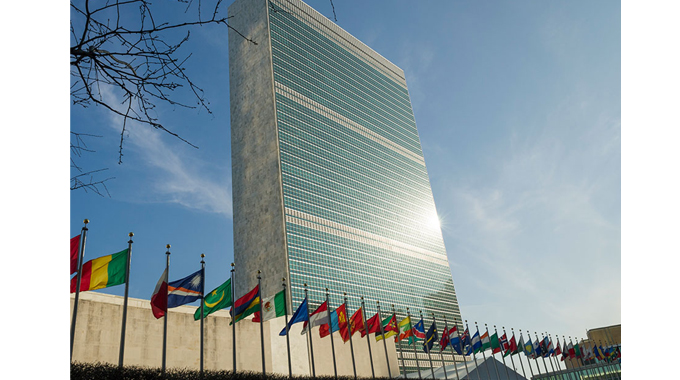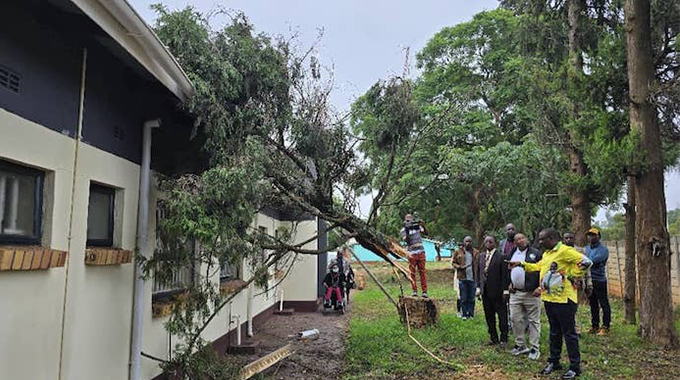Zimbabwe champions rights of minorities – President

Fungi Kwaramba in NEW YORK, USA
ZIMBABWE has come up with a wide range of measures to ensure inclusion of minorities in all facets of the socio-economic fabric of society as part of development that leaves no one and no place behind, President Mnangagwa said yesterday.
In his address at the commemoration of the adoption of the Declaration on the Rights of Persons Belonging to National or Ethnic, Religious and Linguistic Minorities at the United Nations Headquarters in New York, President Mnangagwa said deliberate policy measures such as devolution, and the adoption of a Constitution that recognises 16 official languages demonstrate his administration’s respect for the rights of minorities.
“We are convinced that democratic systems should give due importance to the full enjoyment of the rights of minorities within our countries as protected by both domestic and international law.
“This commemorative event is therefore a timely and powerful reminder of our individual and collective obligation to deliver on the commitments contained in the Declaration on the Rights of Minorities.
“In the case of Zimbabwe, the rights of minorities are enshrined and protected in our new national Constitution, as adopted in 2013. With regard to languages, Section 6 of the Constitution of Zimbabwe now recognises 16 languages up from the previous three national languages.

United Nations headquarters in New York
‘‘More attention is now given to the learning and teaching of minority languages, and their use as medium of instruction and communication in society,” said the President.
Adopted by consensus in 1992, the purpose of the United Nations Minorities Declaration is the promotion and protection of the rights of persons belonging to minorities and in Zimbabwe, President Mnangagwa said minority languages have been adopted as mediums of communication at learning institutions.
“As a demonstration of my Government’s commitment to the promotion of indigenous minority languages, a National Language Centre has been established. This has seen, among other initiatives, the translation of national publications such as the national Constitution, our national vision and documents that relate to the socio-economic development of our country.
“The extensive translation of materials related to the Covid-19 pandemic into minority languages proved invaluable to our Covid-19 National Response Strategy.”
President Mnangagwa said his Government is determined to increase competency among teachers to enable them to teach both those in the minority and majority.
“Training of educators within our institutions of higher learning is being accelerated. As such, mother tongues are now being used as the language of instruction in schools. The establishment of community radio stations which use local languages is enhancing the participation of minorities in the social, political and economic discourse within their communities and the nation as a whole.”

Presently, Zimbabwe is pursuing Vision 2030 to become an upper middle class economy, and education is recognised as a vital component in the National Development Strategy 1 (NDS1) — the framework towards attainment of the country’s objectives.
“Sustainable socio-economic development is an indispensable imperative for the enjoyment of the fundamental rights of any people. My Government is delivering on its commitment to realise a higher quality of life for all our people, and minority groups in particular, leaving no one and no place behind,” he said.
“The Policy of Devolution and Decentralisation has promoted representative, accountable, participatory and inclusive governance and socio-economic development.”
President Mnangagwa said this is being achieved through increased budgetary support directly to the local authorities, resulting in communities right at the village, ward and district levels making independent decisions and prioritising their programmes and projects informed by their most pressing needs.
“This has seen an unprecedented construction of schools, clinics and water and sanitation infrastructure and other social amenities, in the most remote areas of our country”.
So all encompassing is the Government approach that even refugees, who are marginalised in some countries, have been brought on board through the provision of land for their sustainable upkeep.
The President noted that refugees, by dint of dislocation from their home countries, are vulnerable and should therefore be protected both under domestic and international law.
“Together with the International Organisation for Migration and other partners, my Government remains committed to the provision of decent social infrastructure for our refugee communities. Riding on our country’s ongoing agriculture reforms, my administration has, thus, gone a step further and is pursuing ways to ensure that displaced persons have increased access to food and nutrition security, through agriculture activity”.
Yesterday, President Mnangagwa, who has a busy schedule, also participated in the Global Fund 7th Replenishment Conference that was hosted by US President Joe Biden and had bilateral engagements with African Commission Chairperson Mr Faki Mahamat and UN Secretary General Antonio Guterres.












Comments